7 lighting tricks to make a small kitchen look bigger - according to design pros
Use these smart lighting tricks to make a small kitchen look bigger

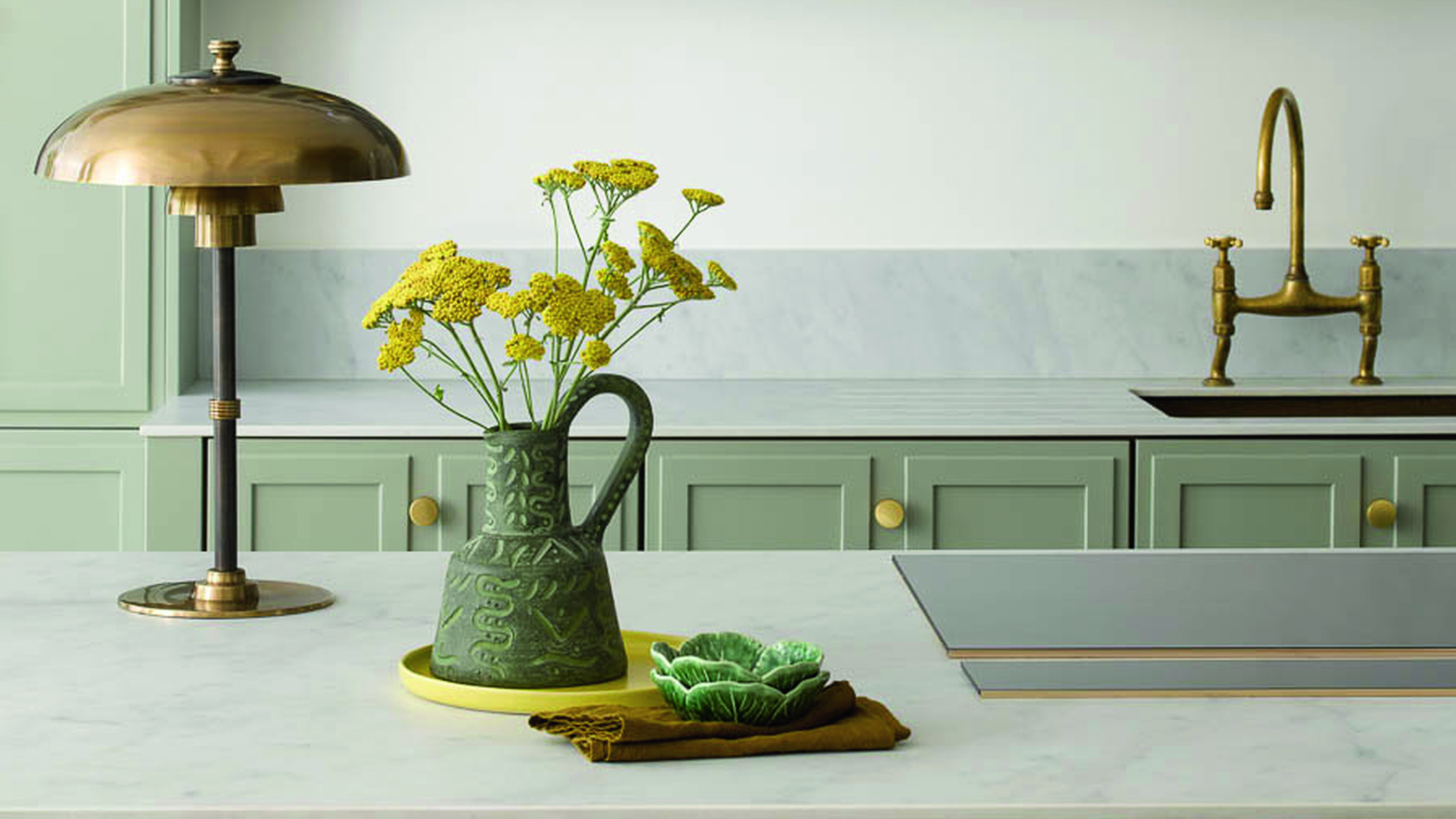
From creating a practical layout to setting the mood for different activities, lighting is tricky to get right in any kitchen. However, in a compact design, your lights need to do all of the above, and visually expand the space to make a small kitchen look bigger.
To get the best kitchen lighting ideas for a small scheme, we reached out to industry experts. We’ve also teamed these ideas with the latest trends to ensure your layout is lit - in more ways than one.
Lighting tricks to make a small kitchen look bigger
'Placing lighting correctly will make or break your design and impact the functionality of the kitchen,' agrees William Durrant, owner of Herringbone Kitchens. So, what are the best lighting tricks to make a small kitchen look bigger?
While compact kitchens have their own cosy charm, they can feel claustrophobic if not lit well. These kitchen ideas shine a light on how best to illuminate small kitchens, and create an airy atmosphere without the need for an extension or remodel.
1. Pick pendant lighting
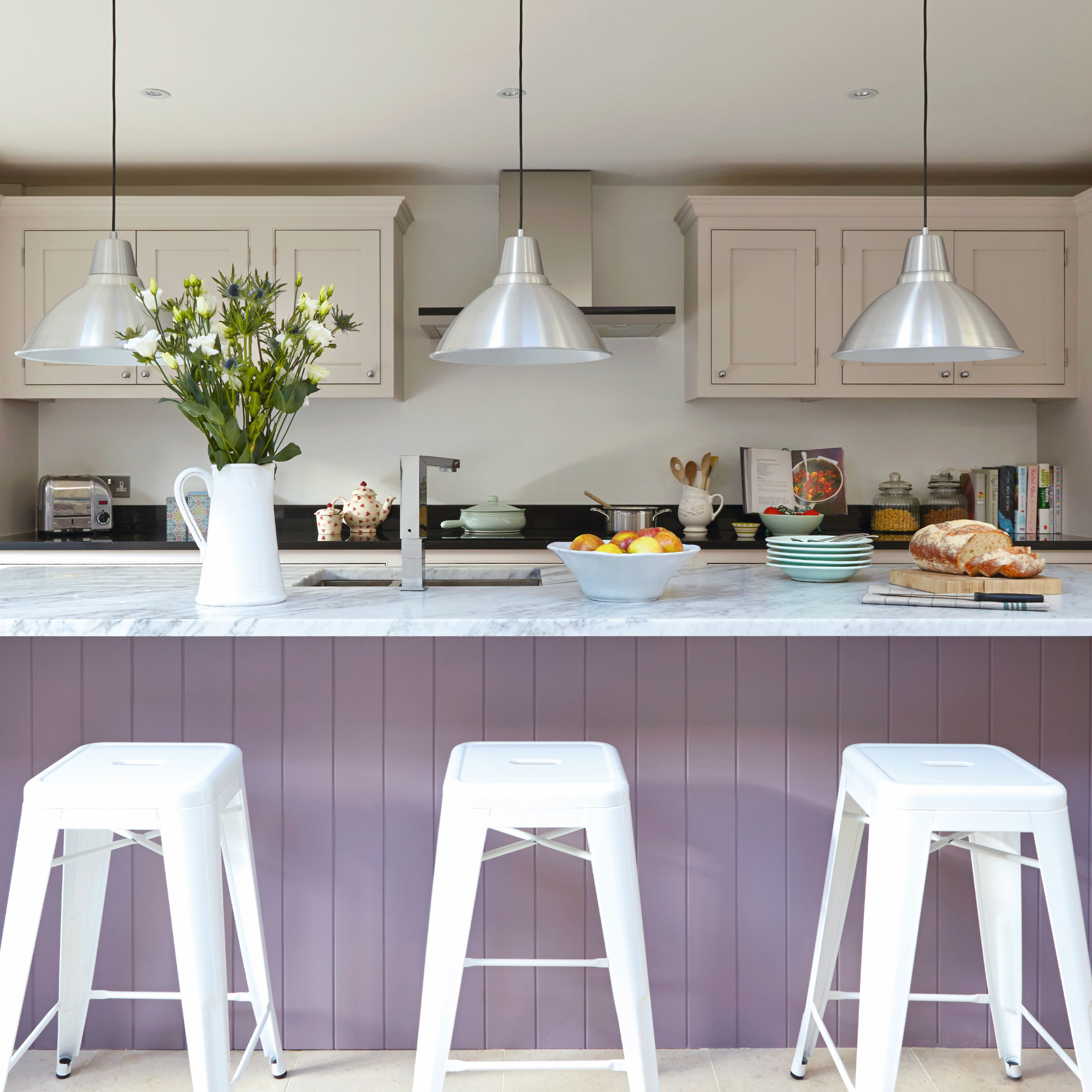
Utilising vertical space is one of the most common ways to make a small room seem bigger, making pendant lights a great choice. As they’re suspended from the ceiling, they create a vertical line that draws the eye up, giving the illusion of taller ceilings and a roomier feel.
'Whether setting the mood or enhancing the functionality of a layout, pendant lighting is a great addition to a small kitchen, as it provides focused illumination,” agrees Ruth Lavender, design expert at Benchmarx. 'Always consider the drop height to ensure they aren’t obtrusive in a compact scheme – typically, pendants hang 30cm to 51cm below a standard 2.4m ceiling.'
Natural textures and tones are one of our favourite lighting trends this year, so choose earthy hues or organic materials, like rattan, to give this idea a fashionable spin.
Sign up to our newsletter for style inspiration, real homes, project and garden advice and shopping know-how
2. Select clear fittings
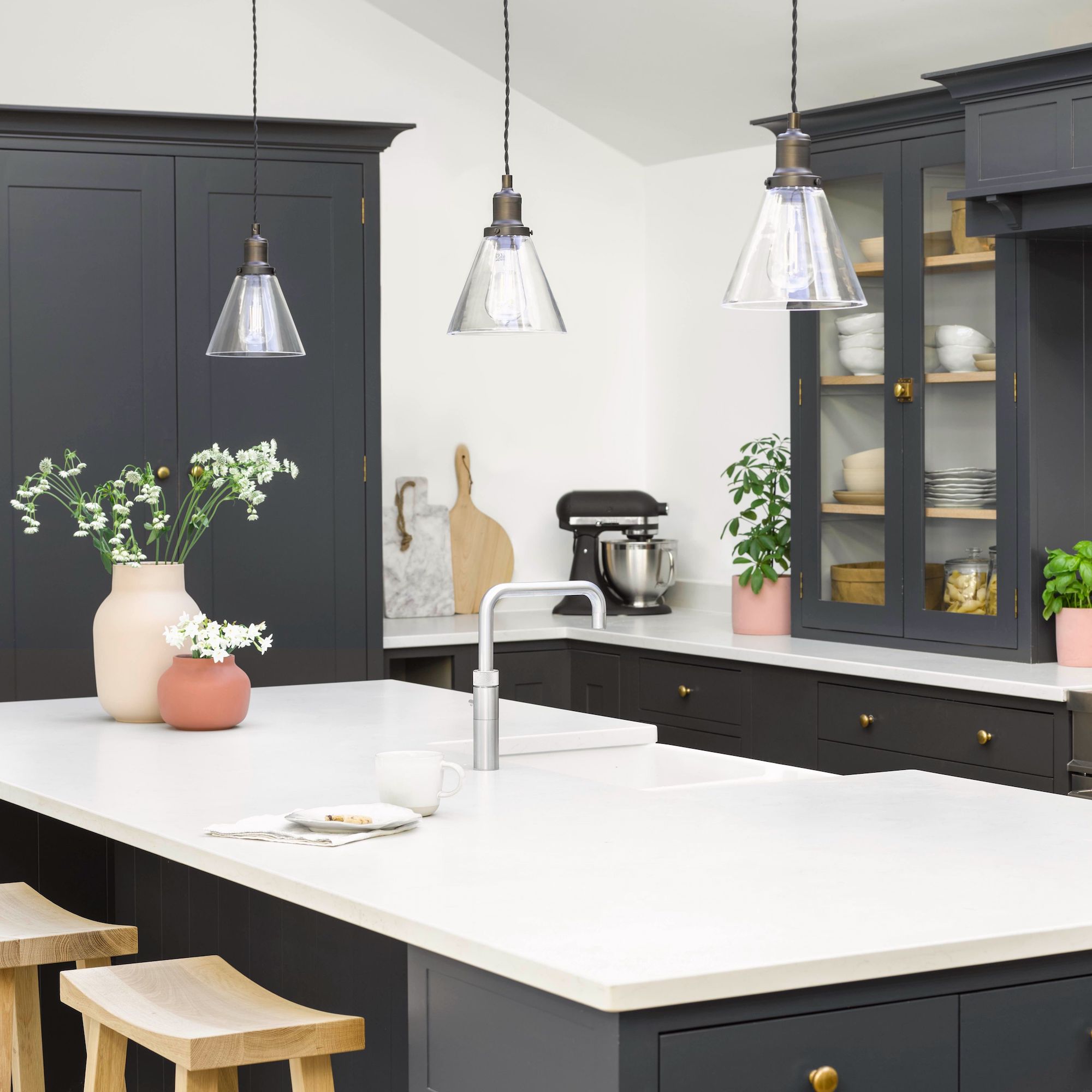
If you do go for pendant lighting or any illumination that requires a light shade, then pick pale or transparent options. This hack allows rays to easily pass through for a brighter look and reduces visual clutter, giving the impression of a larger interior.
Mirrored designs are another great alternative that bounce light around for an airy effect, while acrylic options trick the eye into thinking there’s more space than there is. Go for glass designs for a stylish look that introduces the fashion for artisan elements.
3. Layer your lighting
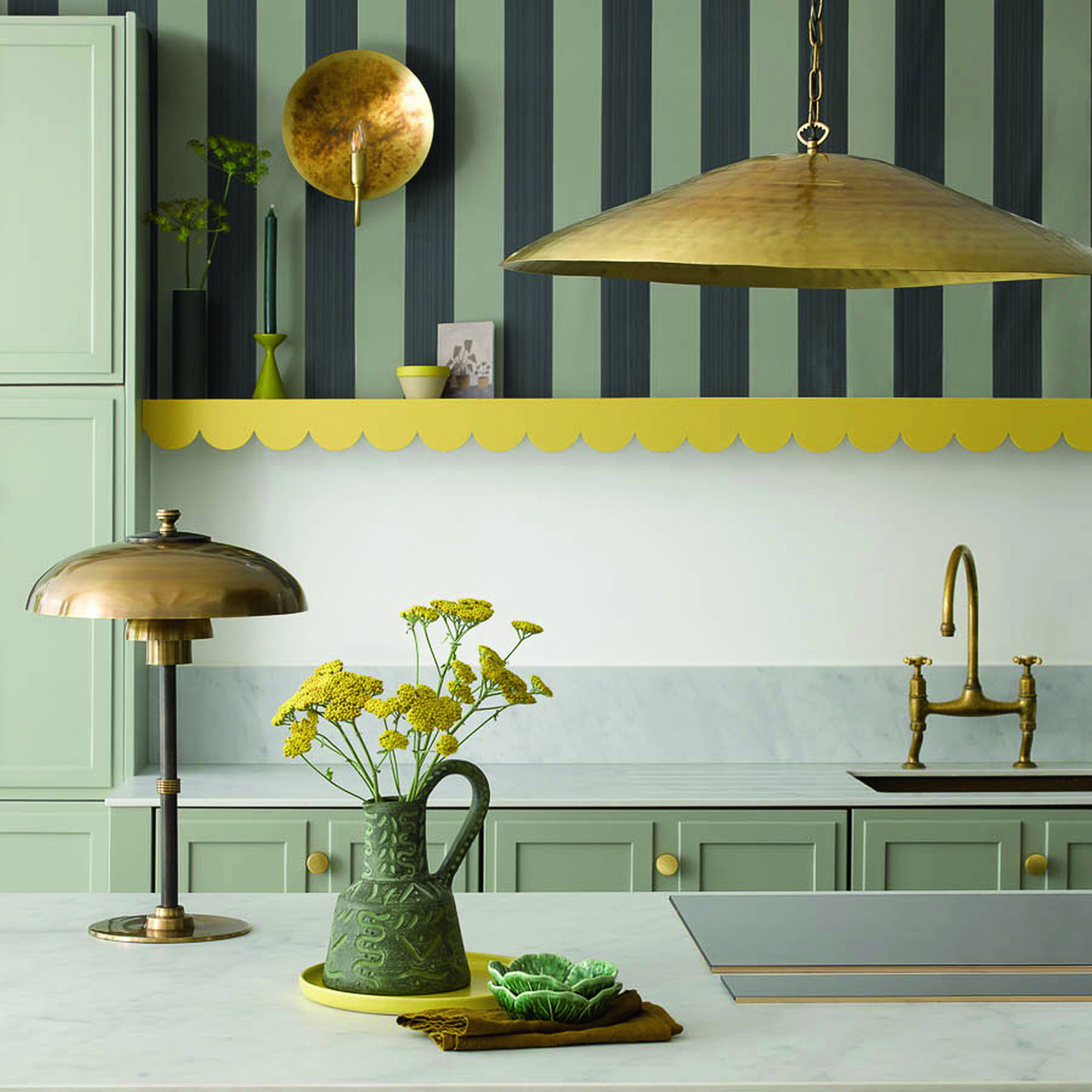
Task, ambient, and accent illumination are the holy trinity of lighting - and they’re even more important in a compact design.
'There are now so many options for kitchen lighting, so it’s worth considering adding at least two if not three variations – task, ambient and accent lighting, in a small interior,' agrees Richard Davonport, managing director at Davonport.
Having only a single illumination source means light pools in one place. This keeps the edges of a kitchen shrouded in shadows, making a space feel cramped. By adding different types of lighting around the room, you’ll create an expansive look that’s usually found in bigger layouts.
Layering lighting in this way is also a huge trend right now and will take your scheme from simple to sophisticated in no time.
4. Scale down ceiling lights
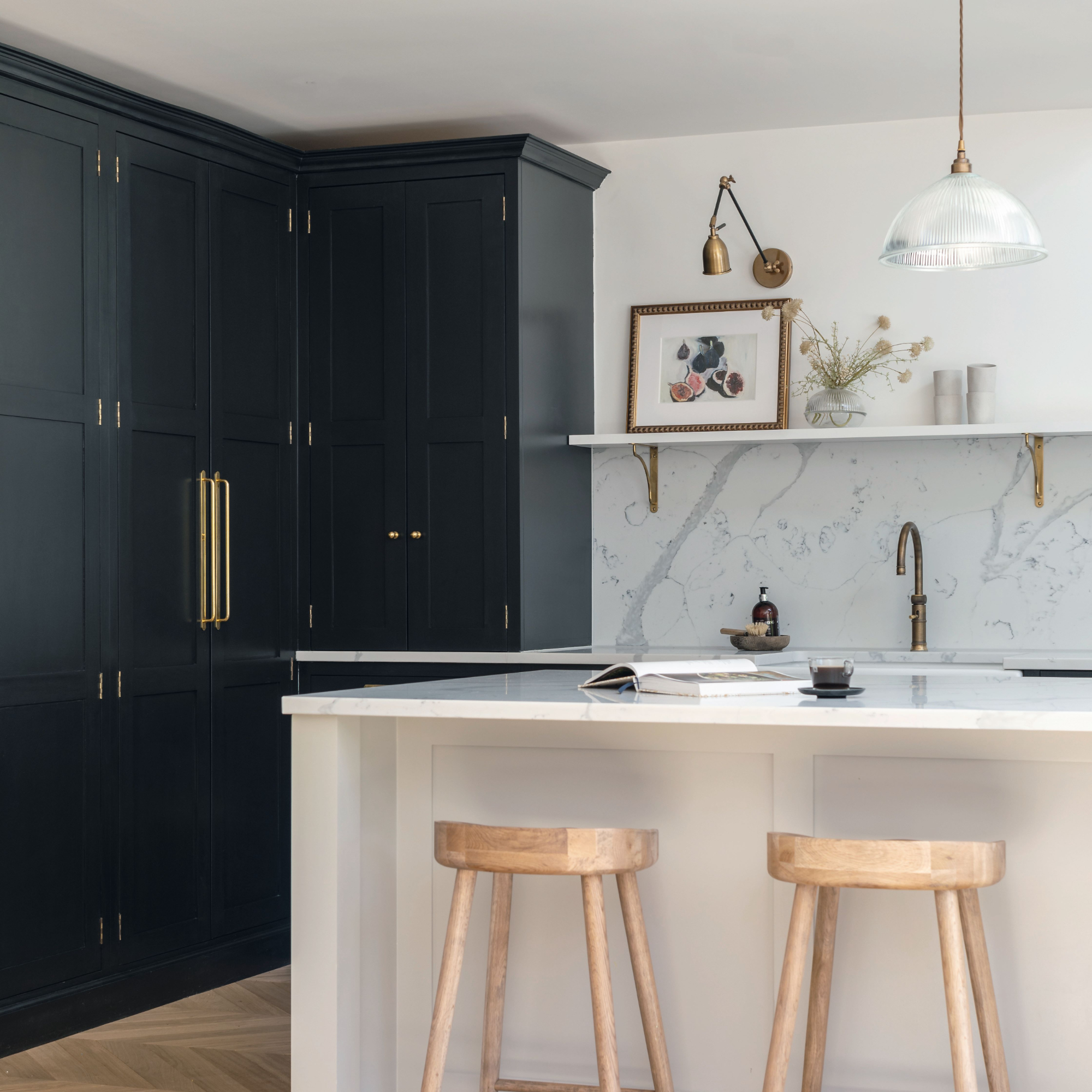
Vintage chandeliers and sculptural ceiling shades are a favourite here at Ideal Home, but they’re probably not the best idea for a small scheme. They tend to be on the larger side and can easily overwhelm a compact interior.
Sconces are a sleek alternative that take up less room and offer the same ambient illumination. They’ll also increase the visual space between the floor and ceiling creating the illusion of a spacious interior.
The quiet luxury look is one of our favourite trends right now, so our top pick is brass styles. If you’re not sold on gold fixtures, then chocolate and caramel tones create a more subtle finish.
5. Choose the right temperature
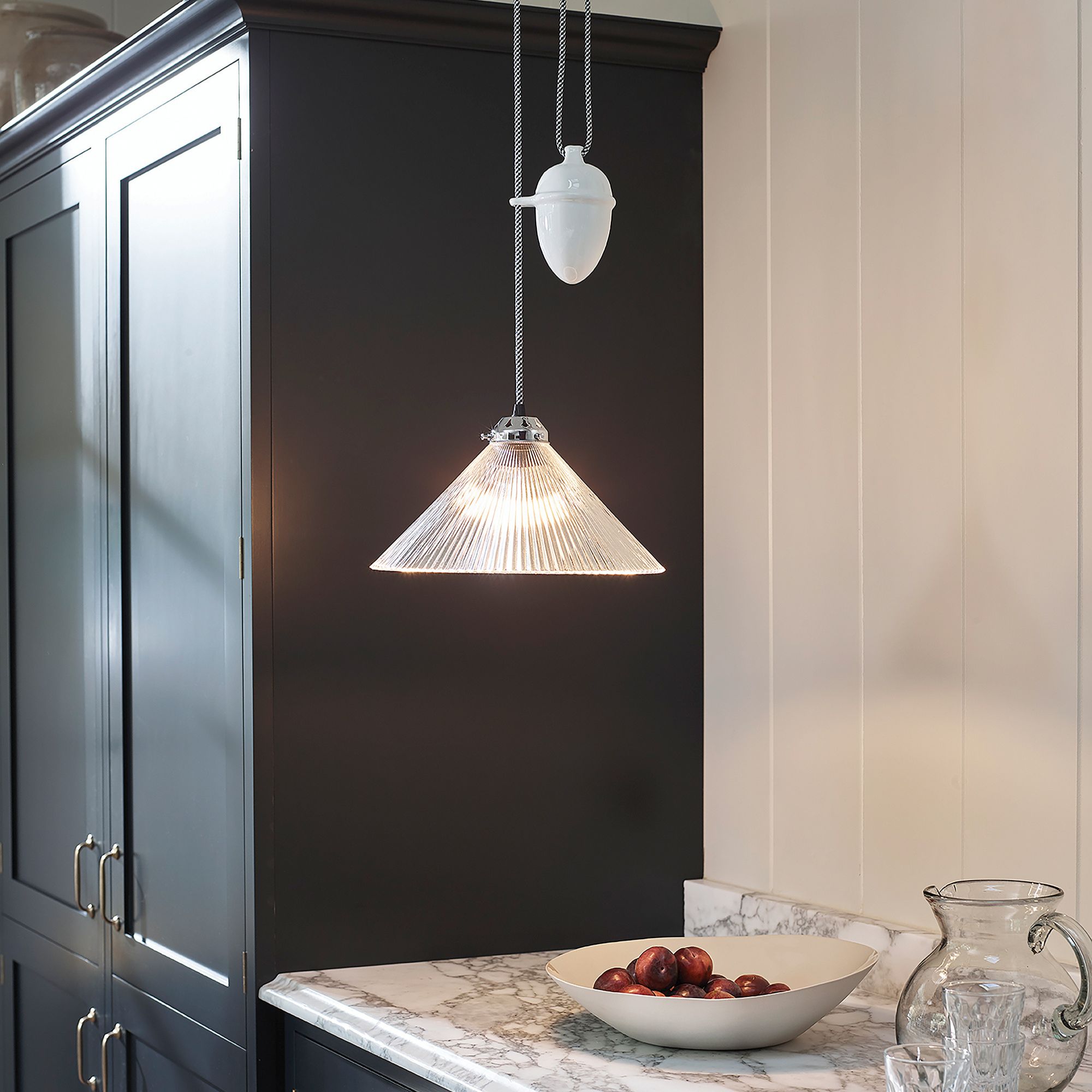
While the size and colour of your lights have the biggest impact on how small a space feels, it’s also important to consider the colour temperature of your fixtures.
Bright white light makes a room look bigger because it reflects off surfaces to create an open atmosphere. It also offers a contemporary look - excellent if you’re after modern kitchen ideas for your layout.
However, Richard warns that having too much white light can make a scheme appear clinical.
'Even though white light can make a room look bigger, it can also make a kitchen feel cold. So instead, embrace the cosiness of a small floor plan and add warm lights for a more inviting interior.'
Want to get the best of both worlds? Choose lighting that can change colour. Multi-functional lighting is all the rage right now, so you’ll be able to find plenty of options on the market.
6. Add interior cabinet lights
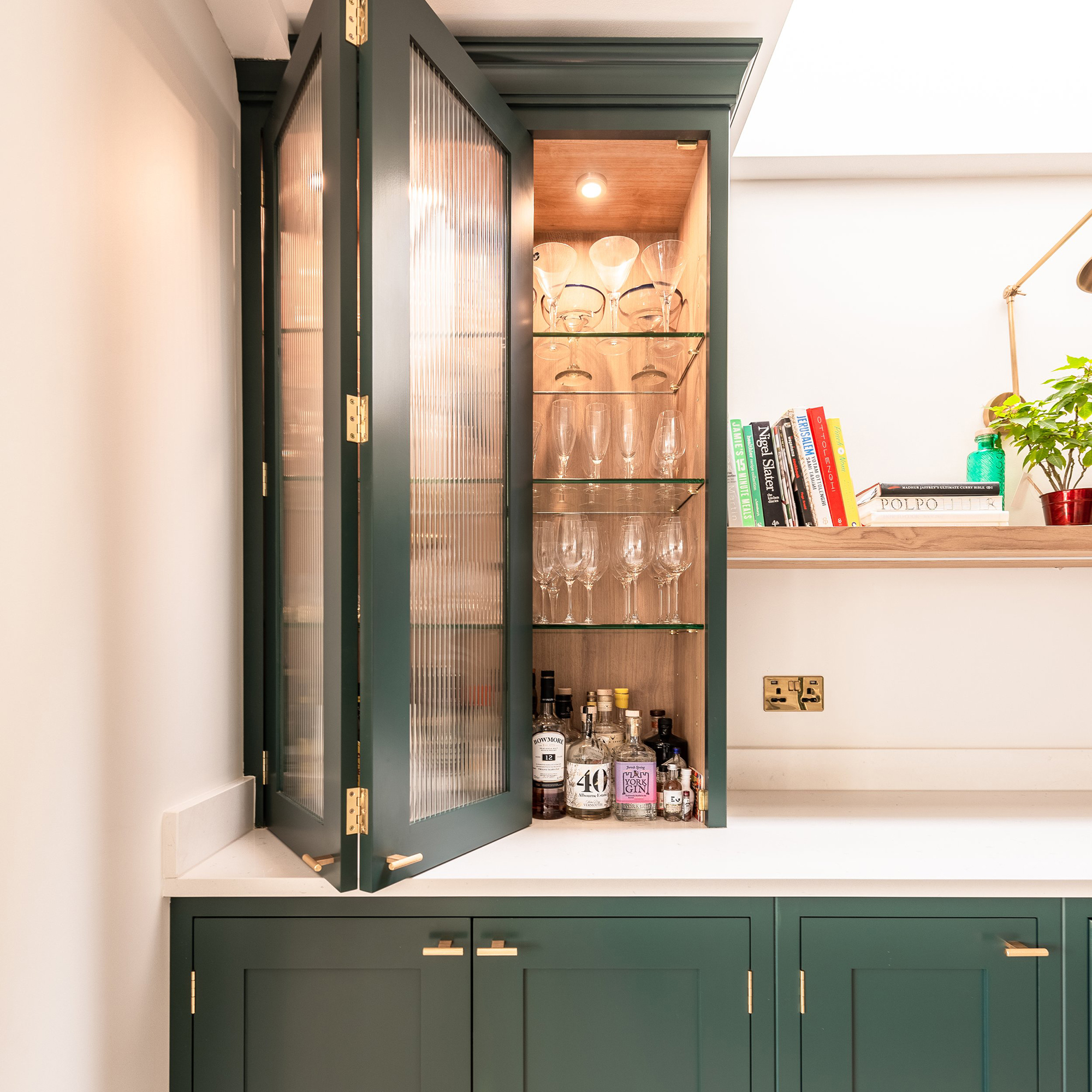
If you’ve read any of our small kitchen ideas, you’ll know that using glazed cupboard doors is a great way to make a compact floor plan look larger. However, Ruth reckons you can amplify the effect with clever lighting.
'Small spaces often have darker areas that create a cramped feel, so interior cabinet lighting is a must-have,' says Ruth. 'Glass-fronted units help bounce light around to banish shadows and give the impression of depth - perfect for narrow layouts.'
This idea also ticks the trend box for hidden lighting. Ruth recommends LED back panel lighting kits which have a slimline design that easily fits into cupboards without taking up too much room.
7. Look to LEDs
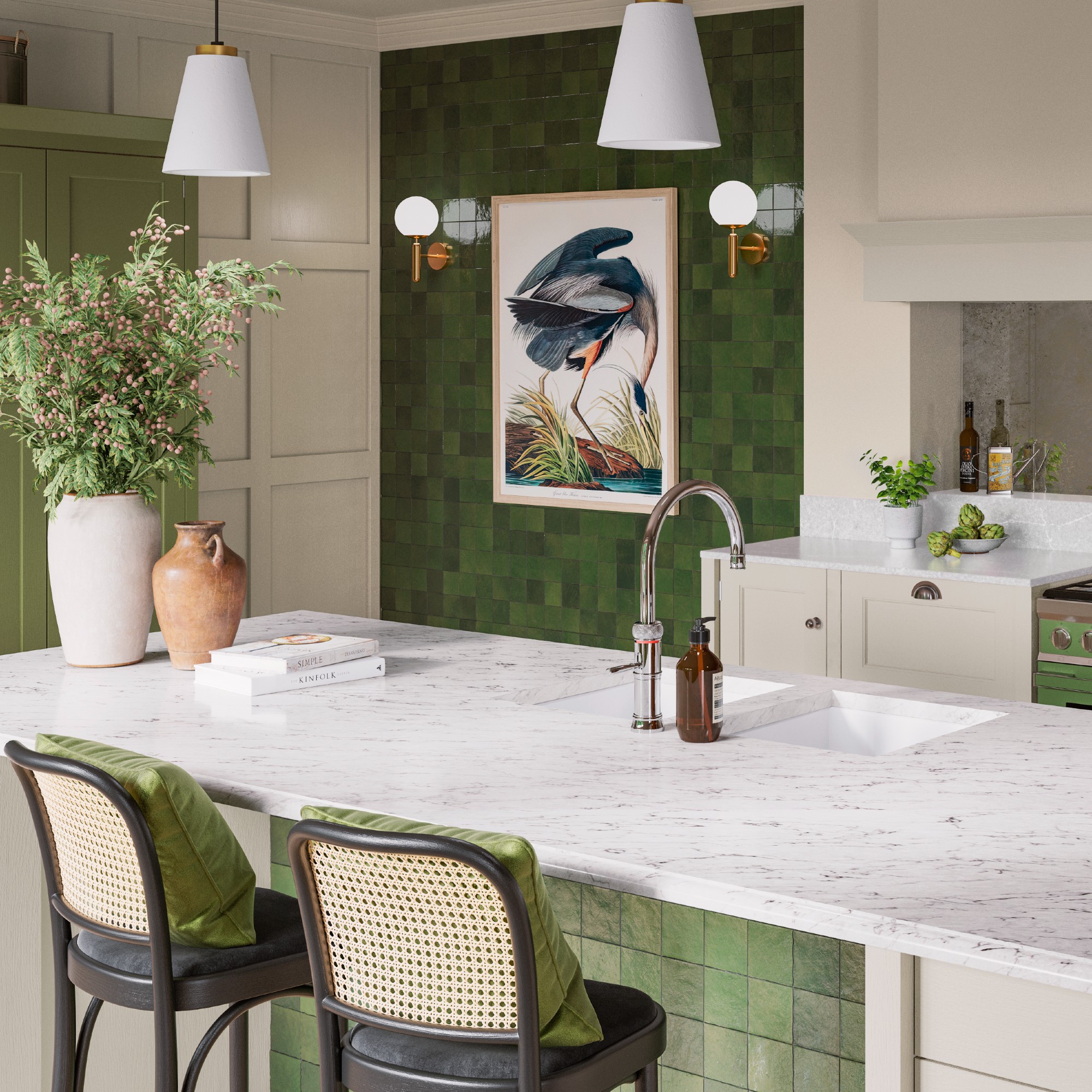
It’s no secret that bright light instantly makes a layout look bigger, making LEDs your best friend. They boast a higher lumen rating than traditional, incandescent illumination, so they’re perfect for banishing shadows that are more prevalent in compact rooms.
They’re also a great way to embrace the trend for eco-friendly interiors, as Richard explains.
'LEDs have a low heat emission, so they are energy efficient, which is better for the environment,' reports Richard. 'While they may cost a little more initially, you’ll save money in the long run.' Kerching.
FAQs
How to plan kitchen lighting?
When planning kitchen lighting, there are a few steps that our experts swear by. Step one: think about illumination early.
'When planning your kitchen, make sure that your lighting options and locations are at the top of the agenda,' says William. 'If your lights need to come out of the ceiling or be dimmable, you’ll need to sort out the wiring early to avoid any delays to your project.'
Step two: consider your main lighting source, as this provides the overall illumination for the room. Spotlights are a great option because they'll evenly spread the light over an area to create a spacious look.
Step three: add alternative illumination.
'Once you've sorted the main lighting source, layer task lighting to create a practical environment suitable for a range of purposes,' says Ruth from Benchmarx. 'Then finish the design with accent lighting, which adds style and elevates a scheme.'
What lumens are best for kitchen lighting?
To ensure there’s enough lighting to carry out tasks, 300 lumens per square metre is usually best for kitchen lighting. You can achieve this by combining multiple low-level light sources, like lamps and downlights, in a zone or opt for bright spotlights for a simple solution.
'There are many innovative lighting products available,' says Ruth. 'Our has many options, allowing you to customise a space. Some models can be used with a touch of a button through a dedicated app or with voice activation, allowing you to dim lights or change the hue to suit different activities.'
Did any of these lighting tricks surprise you?

Alisha Solanki is a freelance writer obsessed with all things interiors. Having graduated with a Bachelor’s degree in English and Creative Writing from Coventry University in 2016, she started her career in the editorial team at Howdens, where she fell in love with writing about interiors. Having recently bought her first new-build home, Alisha is currently furnishing it with a mix of modern and Indian-inspired pieces that reflect her rich heritage.